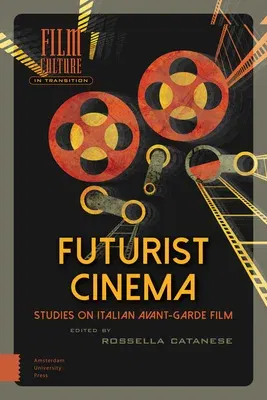Futurist Cinema: Studies on Italian Avant-Garde FilmHardcover, 13 December 2017

Temporarily out of stock
Free Delivery
Cash on Delivery
15 Days
Free Returns
Secure Checkout

Part of Series
Film Culture in Transition
Part of Series
Film Culture in Transition (Hardcover)
Print Length
248 pages
Language
English
Publisher
Amsterdam University Press
Date Published
13 Dec 2017
ISBN-10
908964752X
ISBN-13
9789089647528
Description
Product Details
Book Format:
Hardcover
Country of Origin:
US
Date Published:
13 December 2017
Dimensions:
23.88 x
16 x
2.29 cm
ISBN-10:
908964752X
ISBN-13:
9789089647528
Language:
English
Location:
Amsterdam
Pages:
248
Publisher:
Weight:
598.74 gm